Story
Thank you for taking the time to visit my JustGiving page. The short story is, I am raising money for three worthy causes:
(1) The Niyo Cultural Center, to pay for school fees and school supplies, as well as medical insurance for impoverished Rwandan children and training for some of the children’s mothers to become seamstresses and artisans to support their families from the proceeds of their work.
(2) The Ruhija Vulnerable Children School, to pay for school supplies, mattresses and blankets – and depending on the overall donations received, maybe even a new classroom!
(3) The Bakiga Community Project, to pay for the construction of new springs to ensure people in remote areas have access to water from non-stagnant sources and closer to their homes.
These causes do not have the resources to achieve as much as they would like. I am hoping that, with a little help from family, friends, colleagues and perhaps even strangers, we can make an impact.
Now, the long version of the story…
Mysteriously, I was drawn to Rwanda many years ago. Between 2009 and 2010, I wrote a thesis for my Public International Law module on UN failure before, during and after the genocide, yet I did not know the country or its people. Finally, in June 2017, I adventured to Kigali (via Dubai and Mombasa, and of course, it wouldn’t have been a trip to Africa without a delay at each stage of the journey.)
Niyo Cultural Center
On my first day in Kigali, I met Pacifique. Twice! It was fate. I came to meet Pacifique as an artist and the founder of Niyo Art Gallery that showcases and sells his paintings, and the paintings of other gifted artists such as Mark Kassi, Arnold Birungi, Bertrand Ishimwe, Fred Mafigiri-Figy and Dieudonne Kwizera. Their paintings can also be found in Hotel Milles Collines (Hotel Rwanda) and Chez Robert restaurant, among other locations.
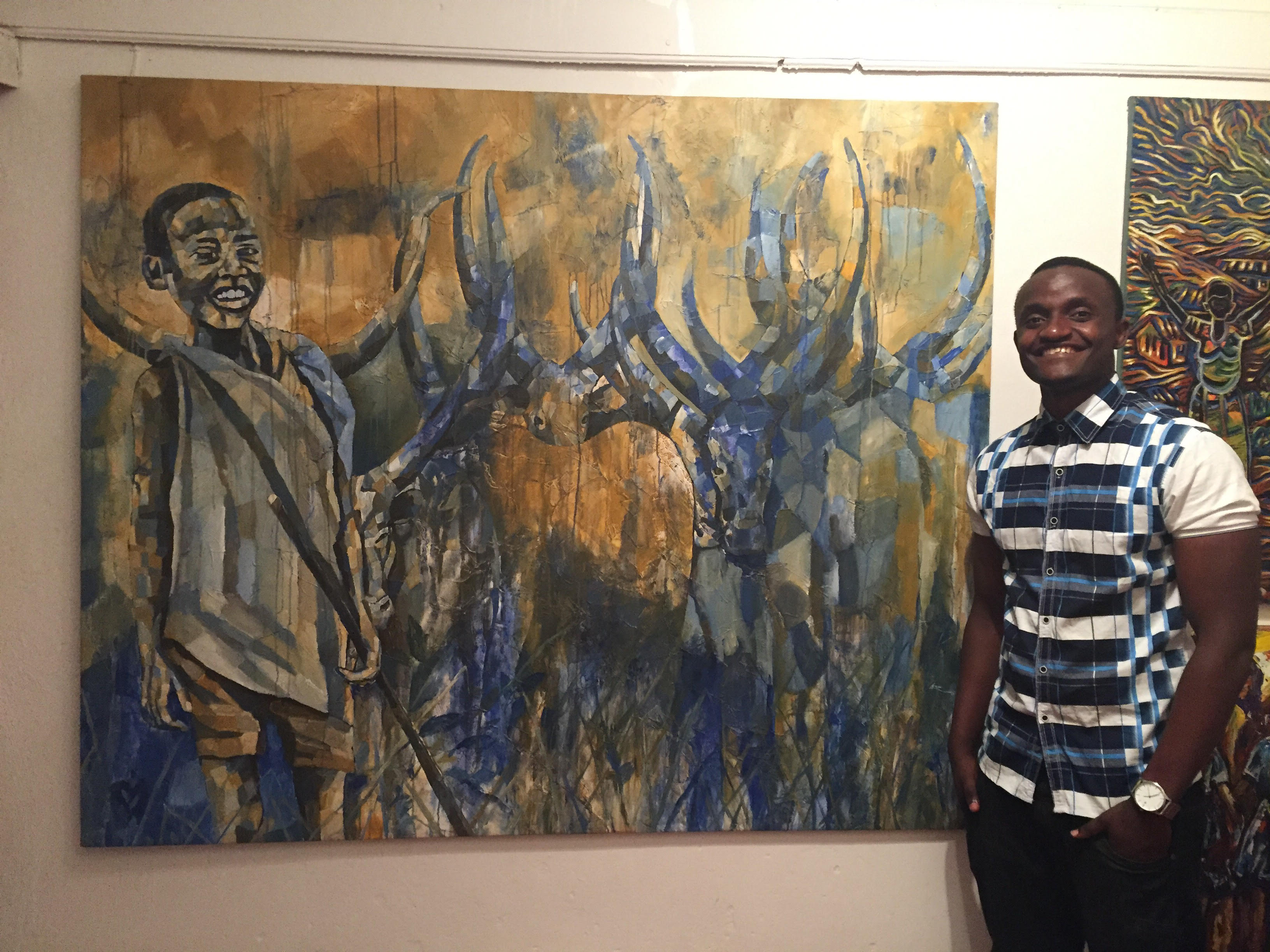
(Caption: Pacifique standing next to a Mark Kassi painting, whose distinct Afro-cubist style, depicts a smiling child shepherd.)
Over a few Verunga’s (local beers), Pacifique shared his story: he survived the genocide and like many other children who lost their families or whose families could not afford to keep them, was living on the streets of Kigali (or “Chigali” as he and many other locals pronounce it). Pacifique was fortunate to have met a Canadian missionary family that adopted him. They supported him and helped him obtain an education. On their departure, he chose to stay in Rwanda, instead of following them back to Canada, and give back to the community by helping impoverished children such as he once was. Pacifique is a talented drummer, dancer and artist and teaches the children these skills.
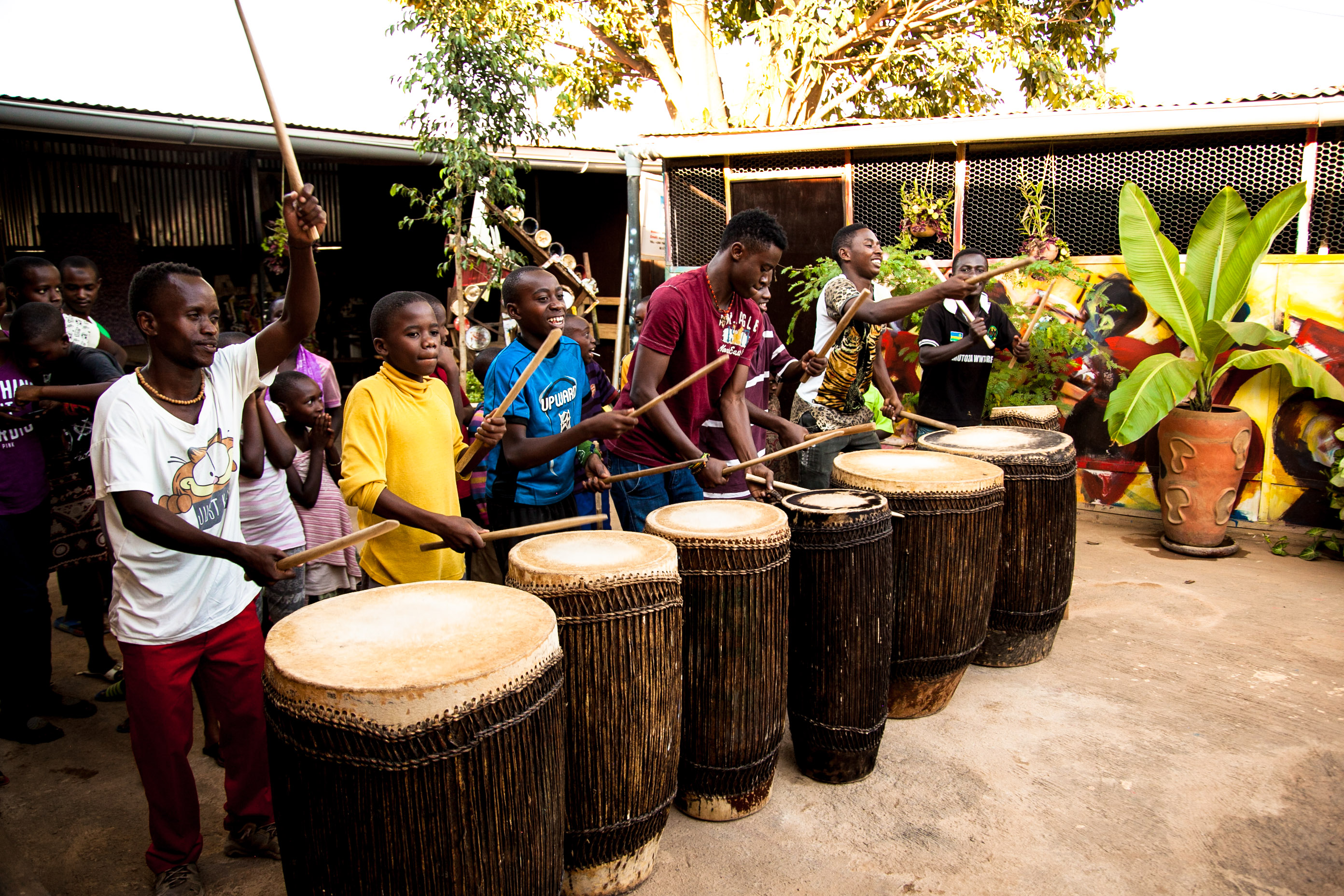
(Caption: A drumming class taking place at Niyo Art Gallery.)
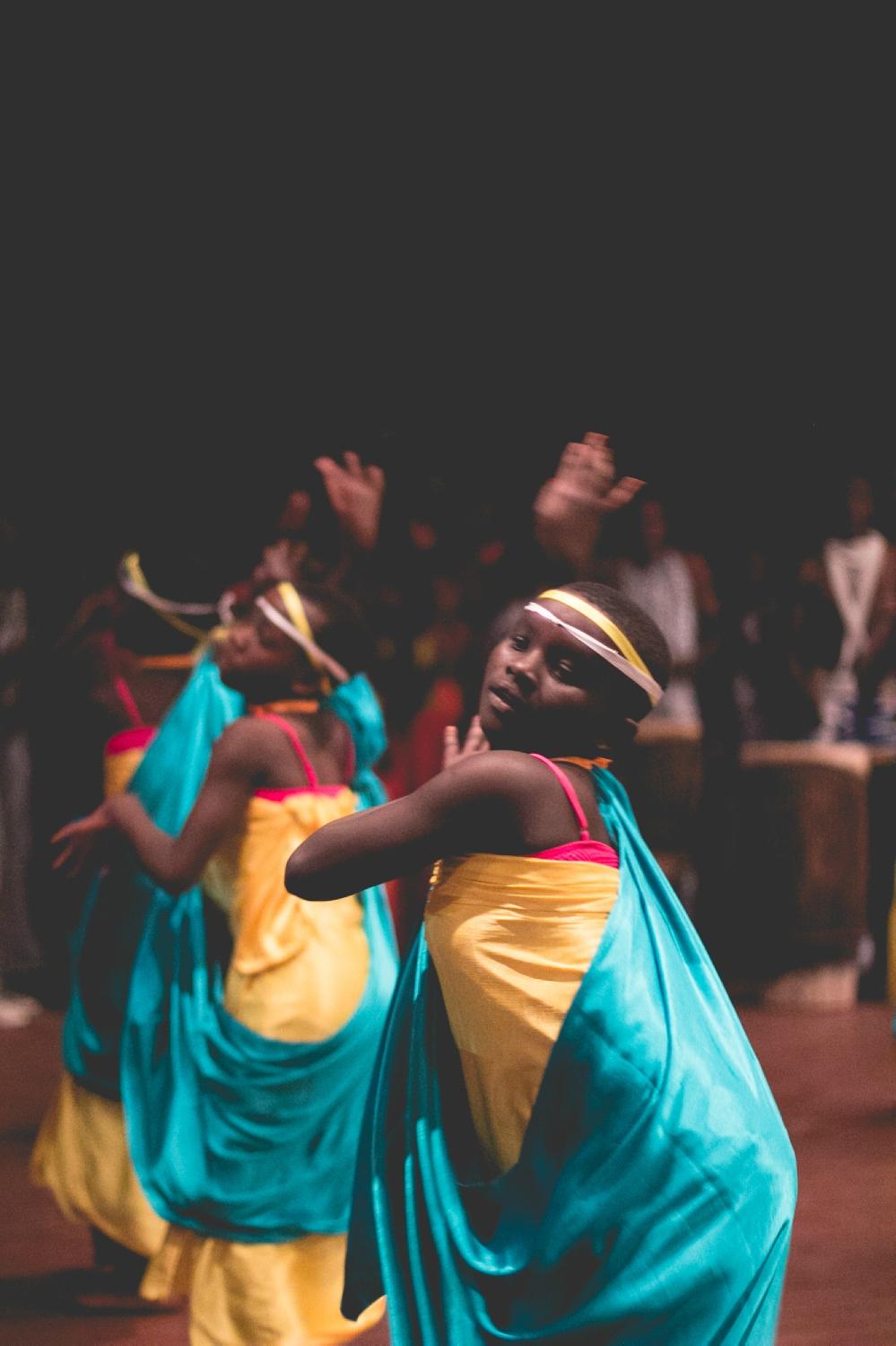
(Caption: Young girls part of the Niyo Cultural Center, practicing traditional dance.)
Pacifique also founded a non-profit organization in Rwanda, Niyo Cultural Center - certificate number 88/RGB/NGO/2017, which uses donations, and revenues from the sale of the fine art from the gallery for school fees and medical insurance for 120 children. The average yearly cost per child in primary school is approximately $100 and secondary school $160. This includes school fees and school supplies as well as medical insurance. Oftentimes, this is how much we will spend on a meal at a nice restaurant when the same amount of money, can provide a chance for a brighter future to just one child.
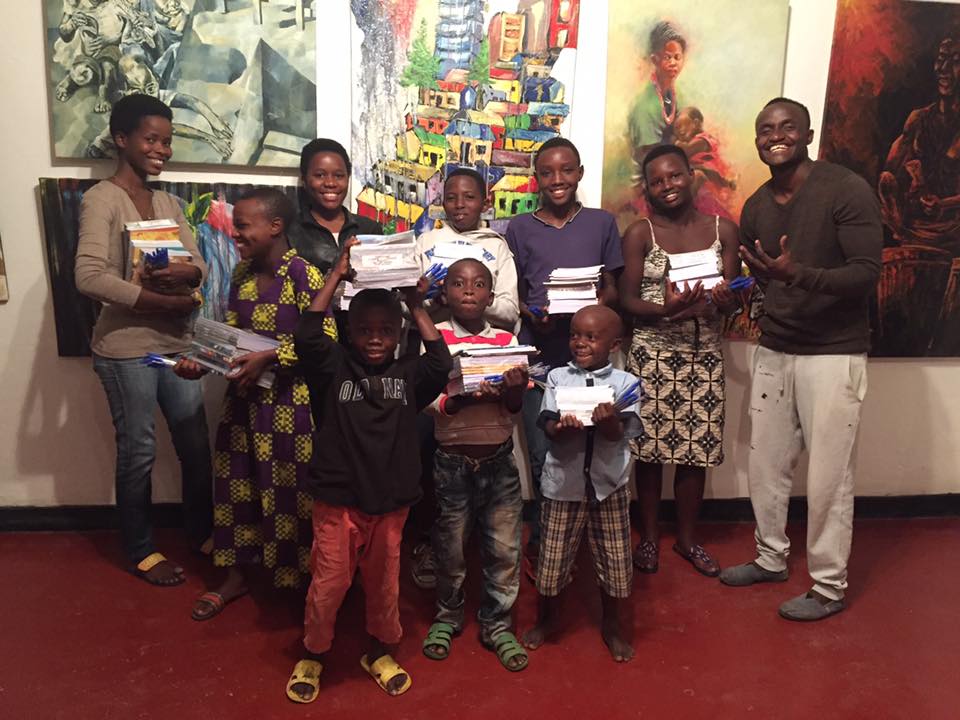
(Caption: Children supported by Niyo Cultural Center. The girl on the far left is Solange. She was orphaned when she was one and adopted by her neighbours. This family could not afford to put Solange through secondary school so she discontinued her education. In 2012, at the age of 14, she became part of the Niyo Cultural Center family and is now continuing her education. Pacifique on the far right.)
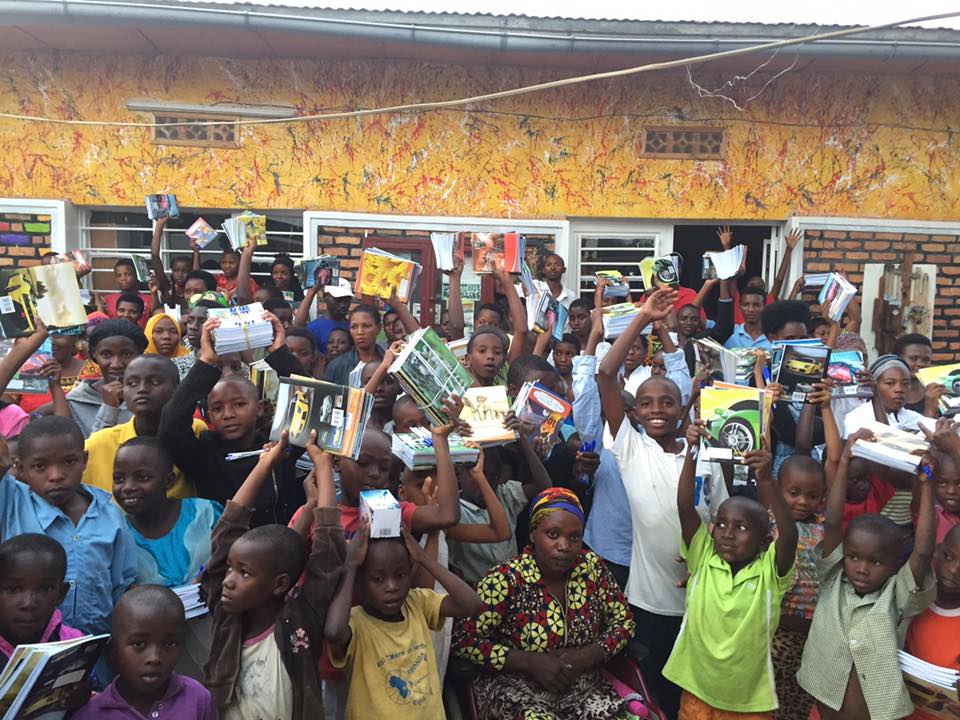
(Caption: More children that are supported by Niyo Cultural Center proudly holding their school supplies.)
Pacifique’s newest initiative is the empowerment of women. This program is aimed at the mothers of many of these children to help them obtain jobs as seamstresses and artisans to receive a sustainable income to support their families. Pacifique is fundraising to:
- rent a workshop;
- hire tailoring and handicraft teachers; and
- purchase sewing and thread tearing machines and supplies,
to kick-start these women’s careers. An outlet will then be established to sell the products and proceeds will be split as follows:
- 50% will go toward purchasing food for the women’s families;
- 20% will be used to provide business loans to one or two women who wish to start their own business; and
- 30% to sustain the program (rent for the workshop and supplies).
Pacifique’s story and work is an inspiration, especially at only 26 years old; he has changed so many lives for the better. I want to support my friend, the children and their mothers, and would be grateful for all the aid you can provide.
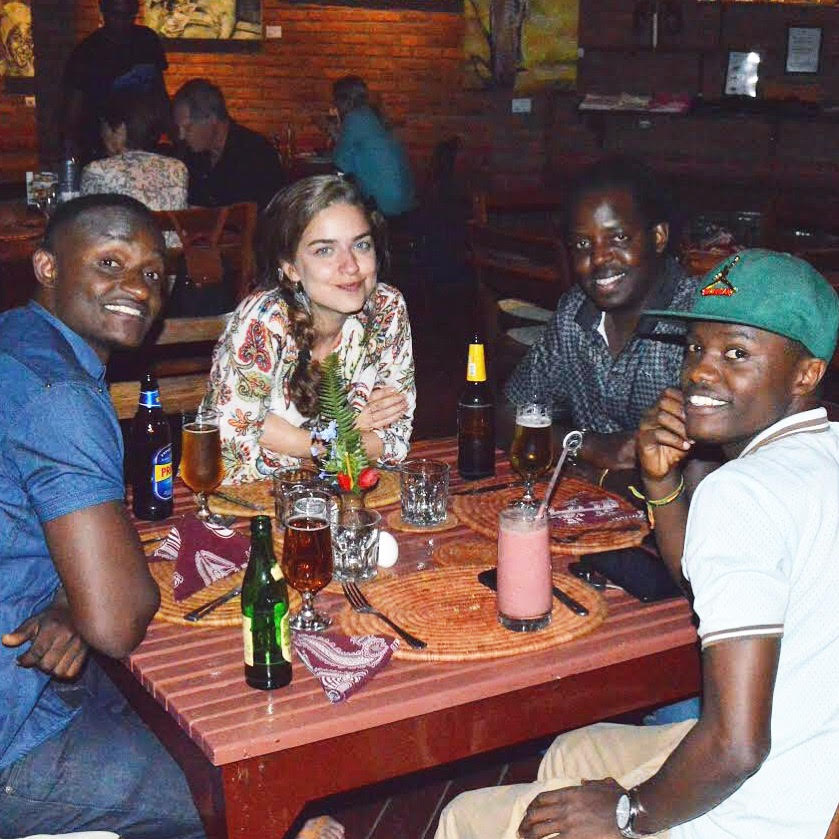
(Caption: From left to right: Pacifique, myself, Mark Kassi, the prominent Ugandan artist, and Olivier Cyusa, the first child supported by Niyo to finish high school who started his Business degree at the University of Kigali at the beginning of September 2017. He now looks after his younger siblings and is the General Manager at Niyo.)
For more information, feel free to reach out to me or Pacifique at paciniyosenga@yahoo.fr You can also find out more on http://www.niyoculturalcentre.org/about/
After Kigali, I took a seven-hour car ride through some of Rwanda’s “thousand hills”, across the Gatuna border into Uganda, through villages and up kilometers of winding forest roads to Ruhija, a remote area in Bwindi Impenetrable National Park, a UNESCO World Heritage Site for its biological significance. During my treks there, I came across two other initiatives that had a profound effect on me and that I would also like your assistance to support. These are: the Ruhija Vulnerable Children School and the Bakiga Community Project.
Ruhija Vulnerable Children School
The Ruhija Vulnerable Children School is on a hill overlooking a vista of other small villages and forests.
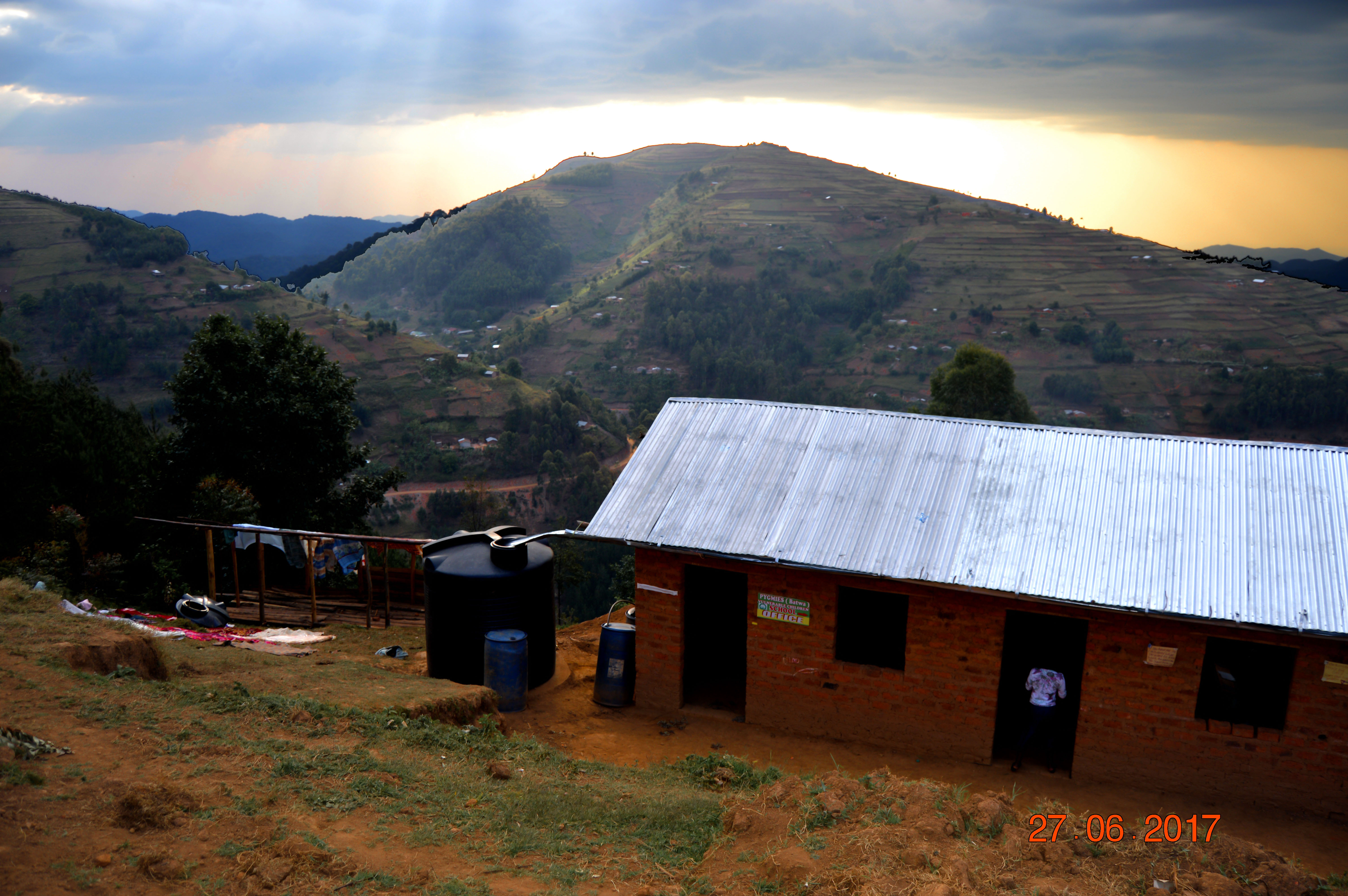
(Caption: The Ruhija Vunerable Children School.)
It currently teaches 97 children that live in the community – many have to walk up to two hours to get to their school from surrounding villages. (Twenty-two of these children are pygmies who still live in the forest). There are other children that board at the school as they are either orphans (49 children) or their parents are unable to care for them (22 children). There are two small dormitories, one room for the girls and the other for the boys. The dormitories contain beds and bunk beds with thin mattresses, and very often, there are three children to a mattress. The boys’ room also hosts a small bookcase of tattered storybooks and board games.
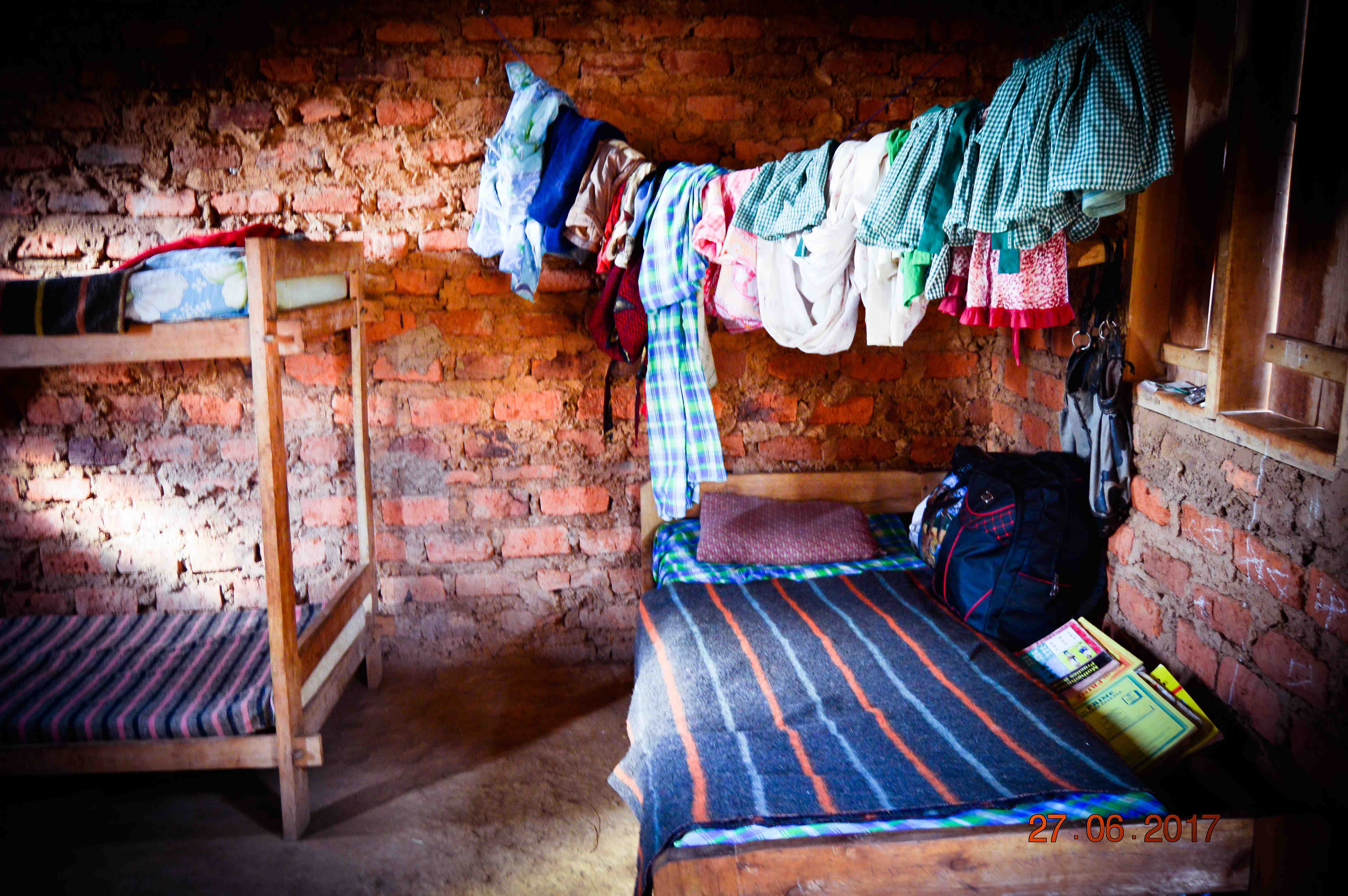
(Caption: The girls dormitory.)
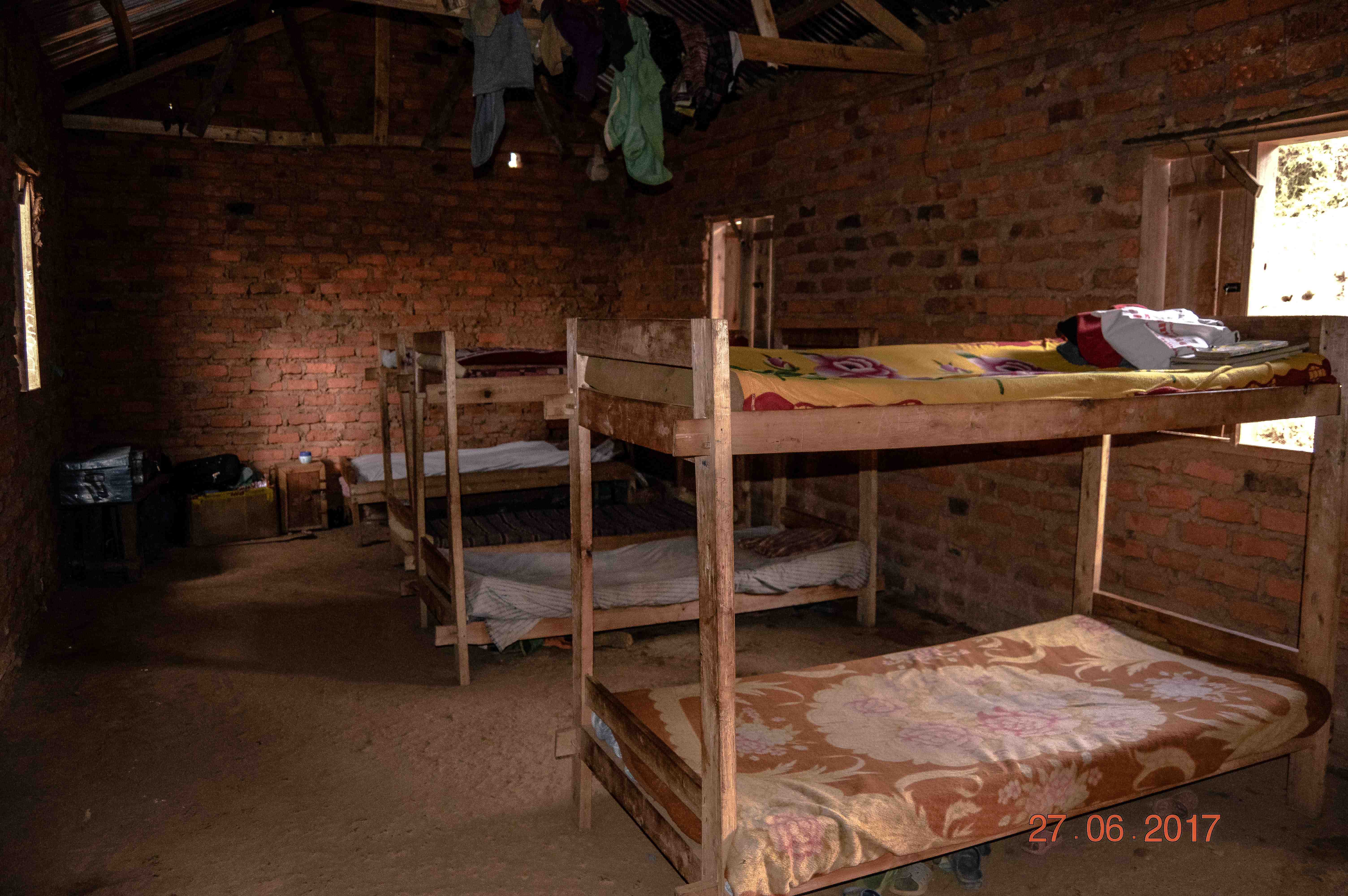
(Caption: The boys dormitory.)
There are five small classrooms, for each of the grades that are packed with wooden benches. The children are crammed on the benches and bent over the desks that are about the same height as the benches.
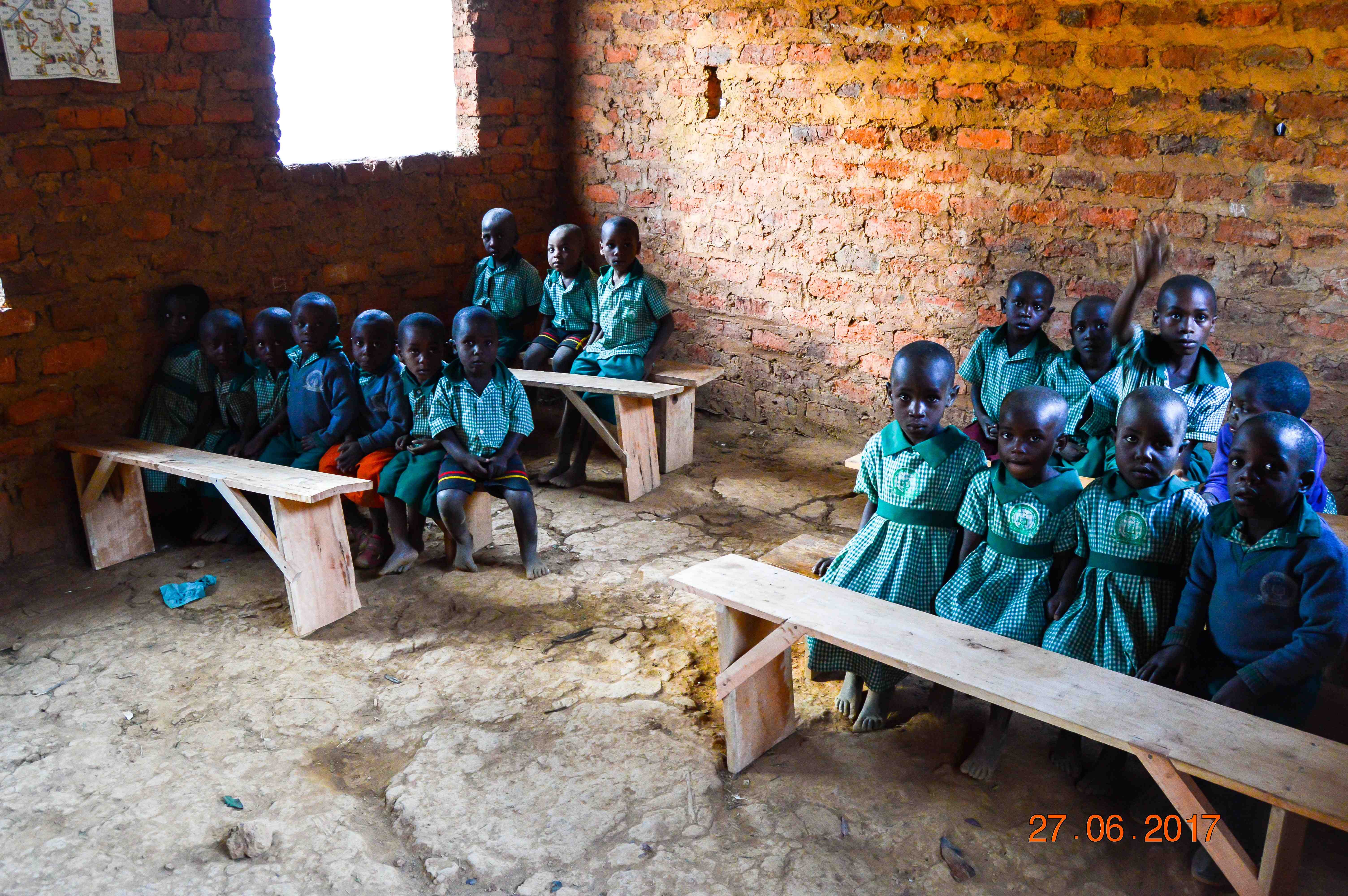
(Caption: The youngest grade crammed in their classroom.)
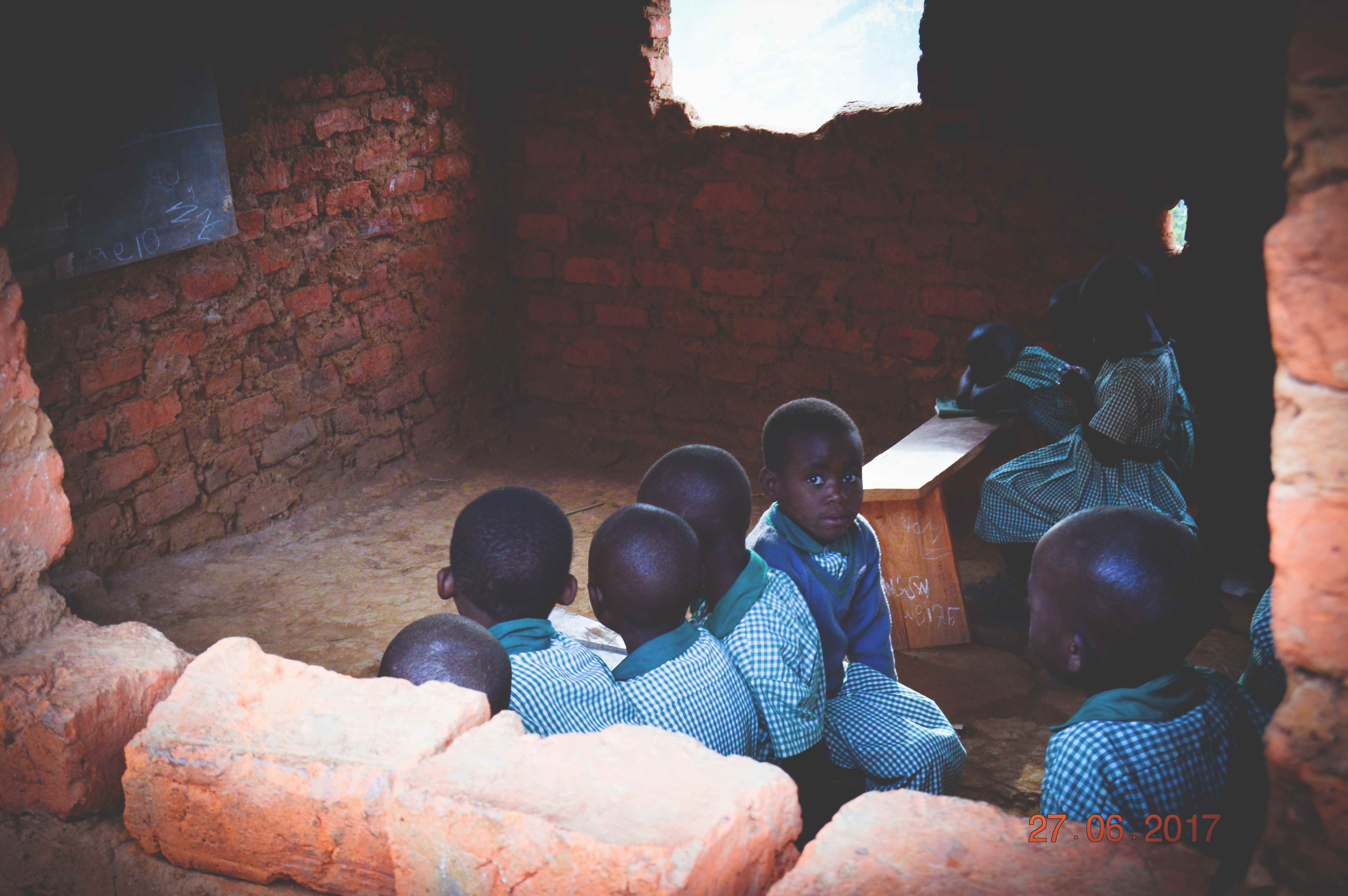
(Caption: A hopeful four-year old. When the children have to write in their notebooks, their backs are bent double over their desk which is about the same height as the bench. Note the hole in the wall on the right side of the picture letting in the last rays of light.)
The children are very polite, sweet and bright (not to mention some of the older ones have some of the neatest handwriting I have ever seen). They would be so grateful for any donations that would go toward building a new classroom (which costs about $1,500, depending on the size, or about $400 to renovate an existing classroom), and purchasing school supplies, mattresses, blankets, and clothes.
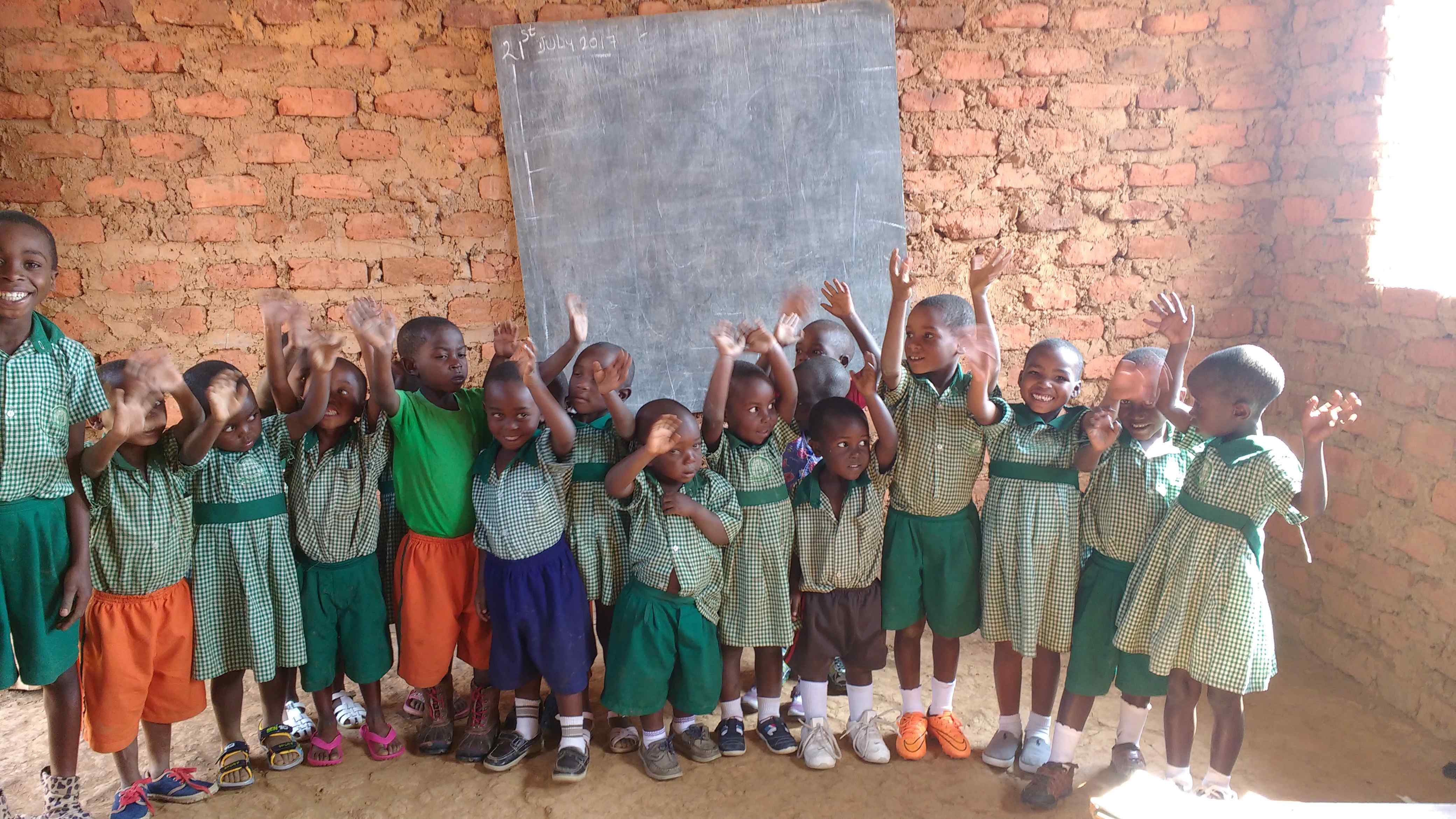
(Caption: The youngest class sending their regards as they start the school year and are in urgent need of school supplies. A big thank you to Ruth, my Ruhija tour guide, for sending this photo when I asked her to confirm the figures in this story.)
For further information, please contact myself or Ruth, at ruhijacommunitywalkwithbatwa@gmail.com (The school does not have a website yet for further information.)
Bakiga Community Project
In Ruhija, I stayed in a self-contained tent at Bakiga Lodge, an eco-lodge, built on the top of a hill, overlooking one the most picturesque valleys. I was greeted by Gina, Rachel and Exevia who work hard to upkeep the lodge (feeding a fire all day to heat the water supplied to the tents/cabins, and hand-washing the guests’ sheets among many other duties). I was impressed to hear them work and speak so passionately about the lodge’s profits: funding water development projects.
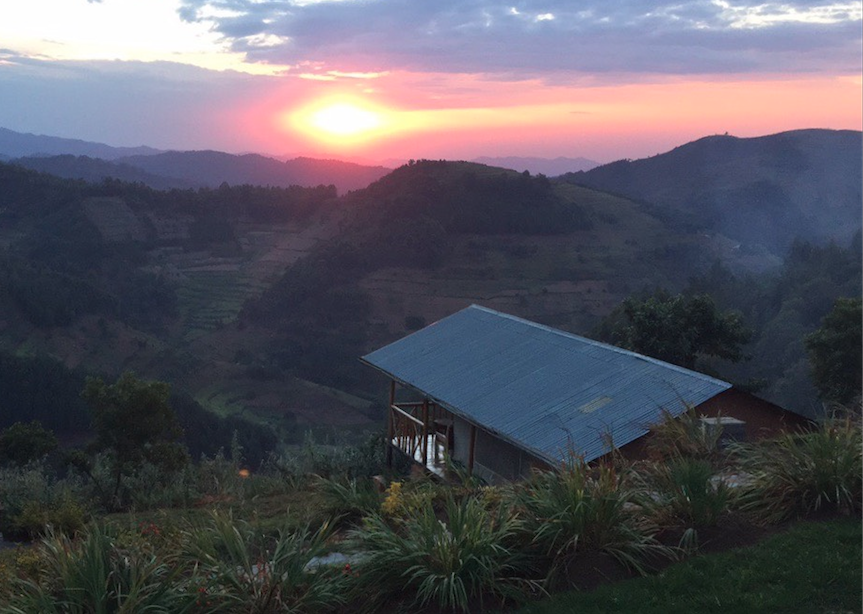
(Caption: My home for the duration of my stay in Bwindi overlooking a fireball sun setting behind the hills of every shade of green, on a orangy-pink sky.)
Women and children often walk several hours each day to fetch water from springs, rivers or stagnant pools. On my ride from Kigali to Ruhija, I saw women walking on the side of the road, with a full jerry-can of water in either hand, a baby strapped to their back with only a piece of fabric, and their collections, usually green tea, from a full day in the fields balanced so elegantly on their head. I was in awe of these women’s strength and endurance, which even the fittest of us would likely find challenging to undertake.
As of May 2017, Bakiga Community Project, a registered NGO in Uganda and the United Kingdom (charity number 1156306), constructed/repaired 151 springs and purchased 24 community water tanks that collect rainwater for communities without sources to natural springs and save women, such as the ones I saw, from long and arduous walks to water sources. (The cost of constructing one spring is about $100 and the cost of a large tank is about $1,000. A large tank full of water can serve a community for approximately six weeks during the dry season.)
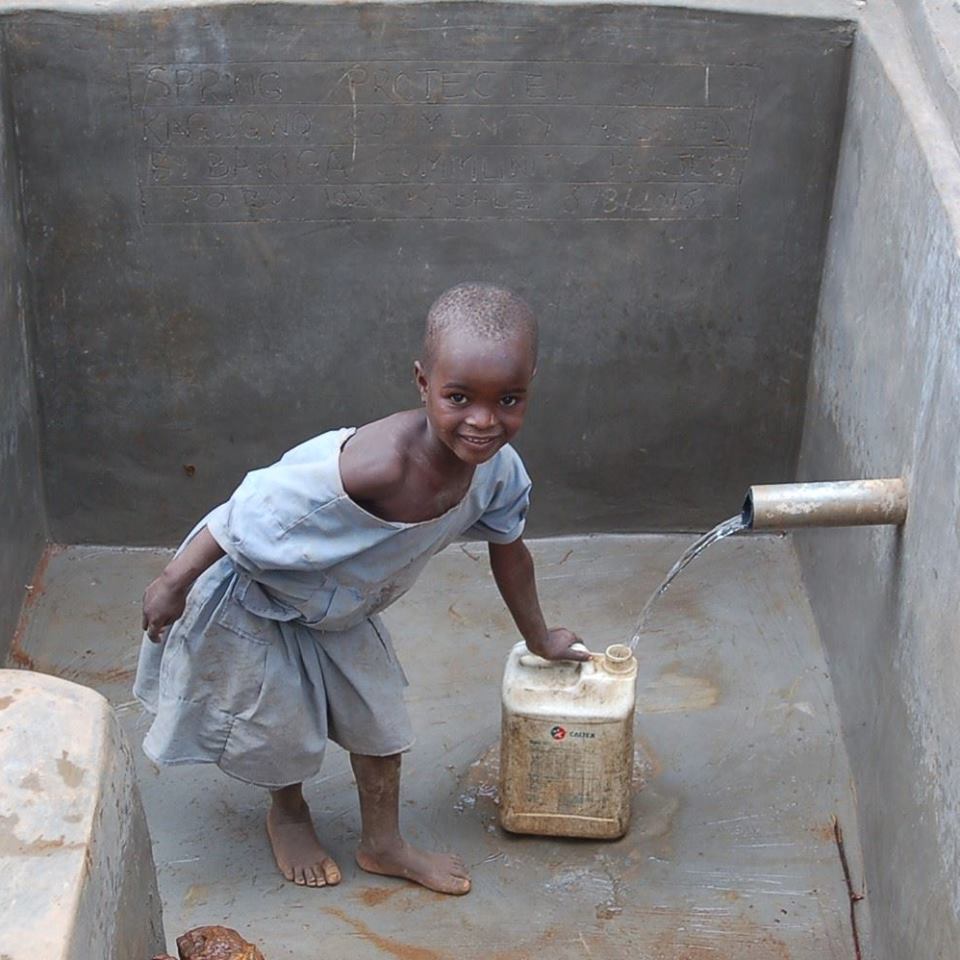
(Caption: A young girl collecting water from a spring constructed by the Bakiga Community Project.)
For more information about the Bakiga Community Project, please visit: https://bakigacommunityproject.wordpress.com/
If you have made it to the end of this long narrative, thank you. Your support in reading these stories and hopefully donating to these causes is invaluable; I assure you, as little or as much as you are able to donate will go a long way to changing some people’s lives.
The total amount of the donations collected will be split between the three projects. However, if you prefer to donate to one of the initiatives leave me a comment in the donation submission or message me separately.
Thank you!
Christiana O’Connell-Schizas